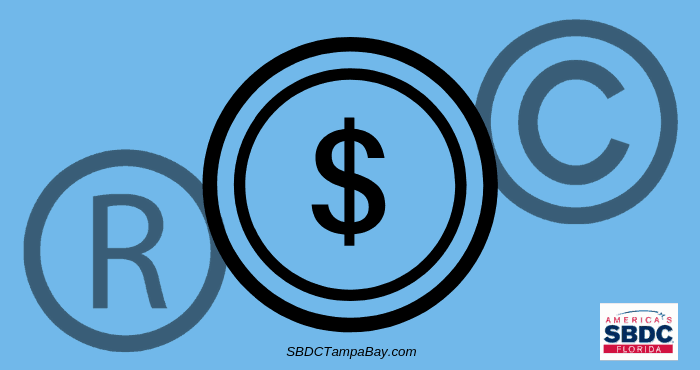Learning about intellectual property can save your business money
by Selma Canas | November 6, 2018
America’s SBDC Network recently held its annual conference in Washington, D.C., where I was lucky enough to attend an intellectual property (IP) session at the Global Intellectual Property Academy (GIPA), a learning and resource center located at the U.S. Patent and Trademark Office (USPTO) headquarters.
GIPA provides training to officials of IP on patents, trademarks, copyrights and enforcement, to strengthen IP protection in the U.S. and abroad. Living and doing business in a global world, as we do now, there is potential risk to a company’s IP internationally, as well as, domestically. Here are some key takeaways from the session that business owners might find helpful.
Businesses typically consider protecting their logo and/or invention but may not consider protecting their written material or secrets. Businesses usually have a varied IP portfolio. For example: KFC has their logos and slogans protected by trademarks; cooking methods and equipment protected by patents; the recipe of “11 herbs and spices” is protected by trade secrets; and drawings of Colonel Sanders, jingles and ads are protected by copyrights. According to Susan Anthony, Attorney-Advisor at USPTO, “businesses have more copyright material than any other IP”.
Copyright protects the expression of ideas (not the idea itself), such as movies, music, books, logos, product design and packaging, advertising, promotional and educational materials, and much more. It is a bundle of rights including making changes to work, making copies, distributing copies, and others.
Copyright does not require registration. However, registration does offer added value and it is the easiest, cheapest and fastest process compared to the other IP registrations. Internationally, copyrights are protected under a country’s national copyright laws but there are copyright treaties in many countries.
For more information, visit the U.S. Copyright Office’s website.
Trademarks protect words, slogans, and logos that identify a company’s products. There is a very important difference between U.S. and international trademark protection. In the U.S., trademark protection begins as of the first day of use, by the first person to use them. Internationally, the first person to register a trademark is protected. Therefore, a company doing business overseas, should seek the advice of a trademark attorney prior to attending international tradeshows or making international sales in order to reduce the potential risk of trademark infringement.
Visit www.STOPfakes.gov for country specific information.
Trade secrets protect confidential business information such as recipes, formulas, client lists, ideas, and much more. For example: WD40’s formula is a trade secret, as are the 39 previous formulations before #40. There is no registration for trade secrets in the U.S. or abroad but they are protected by national laws and last forever. The company must take precautions to avoid disclosure of trade secrets such as having employees sign non-disclosure agreements, providing badges and granting access to only certain areas of the company, and using separate computer systems, just to name of few.
Visit the World Intellectual Property Organization’s website for more information.
Patents protect one’s invention for 20 years and prevents others from making and selling the same product. Patent protection is not cheap, easy, or quick and the use of a patent attorney is highly recommended.
The most important thing to remember about patents is the time frame. In the U.S., an inventor has one year to file a patent from the time the product is made public. However, internationally, there is no grace period – one must file for a patent first, before talking about the product or selling the product.
There are many resources available to assist small businesses with patent protection, including pro bono assistance. The Patent Pro Bono Program matches inventors and small businesses that meet financial criteria with volunteer patent practitioners to file patent applications. This program is exclusively for patents and is available in every state. Visit the website for more information.
Additionally, the U.S. Patent and Trademark Office (USPTO) maintains regional offices to increase outreach activities, improve application processes and provide education. Located in Detroit, Denver, Silicon Valley, and Dallas, these offices provide inventors and small businesses with a USPTO presence throughout the US in addition to DC headquarters.
Lastly, the USPTO provides videos for inventors and entrepreneurs just starting out who want to learn about intellectual property rights. The video, Basic Facts About Trademarks: What Every Small Business Should Know Now, Not Later, highlights trademarks and explains the differences of each type of intellectual property.
Learning how to protect your company’s intellectual property in the U.S. and abroad can help your business reduce potential IP risk and save you money in the end.






Selma Canas
Canas, Consultants, International Consultants 2, TampaNASBITE Certified Global Business Professional (CGBP), Florida SBDC at USF, Tamp
Specialties: International Trade, Export Marketing Plans, Market Research
Selma Canas is responsible for guiding small businesses through the complexities of developing export marketing and international expansion plans and teaching seminars on basic international trade. She has developed more than 30 Export Marketing Plans during the past six years for local businesses, and participated in trade missions to Brazil, Chile, Canada, and the Dominican Republic. Canas has more than 15 years of experience in sales, marketing and customer service in a variety of industries, including freight forwarding, real estate and advertising. As a co-owner of Restaurant Guide USA, she increased sales and distribution points and tripled the size of the distributed product.
As a real estate broker-owner, Canas carved a niche in the Latin American community and had a career sales volume of more than $37 million. Canas earned her bachelor degree in economics from the University of South Florida. She is a NASBITE Certified Global Business Professional and holds an Export and Trade Counseling Certification from the U.S. Small Business Association. Selma earned Florida SBDC at USF Employee of the Year honors in 2016. She is a member of Toastmasters international and is fluent in Spanish and Portuguese.